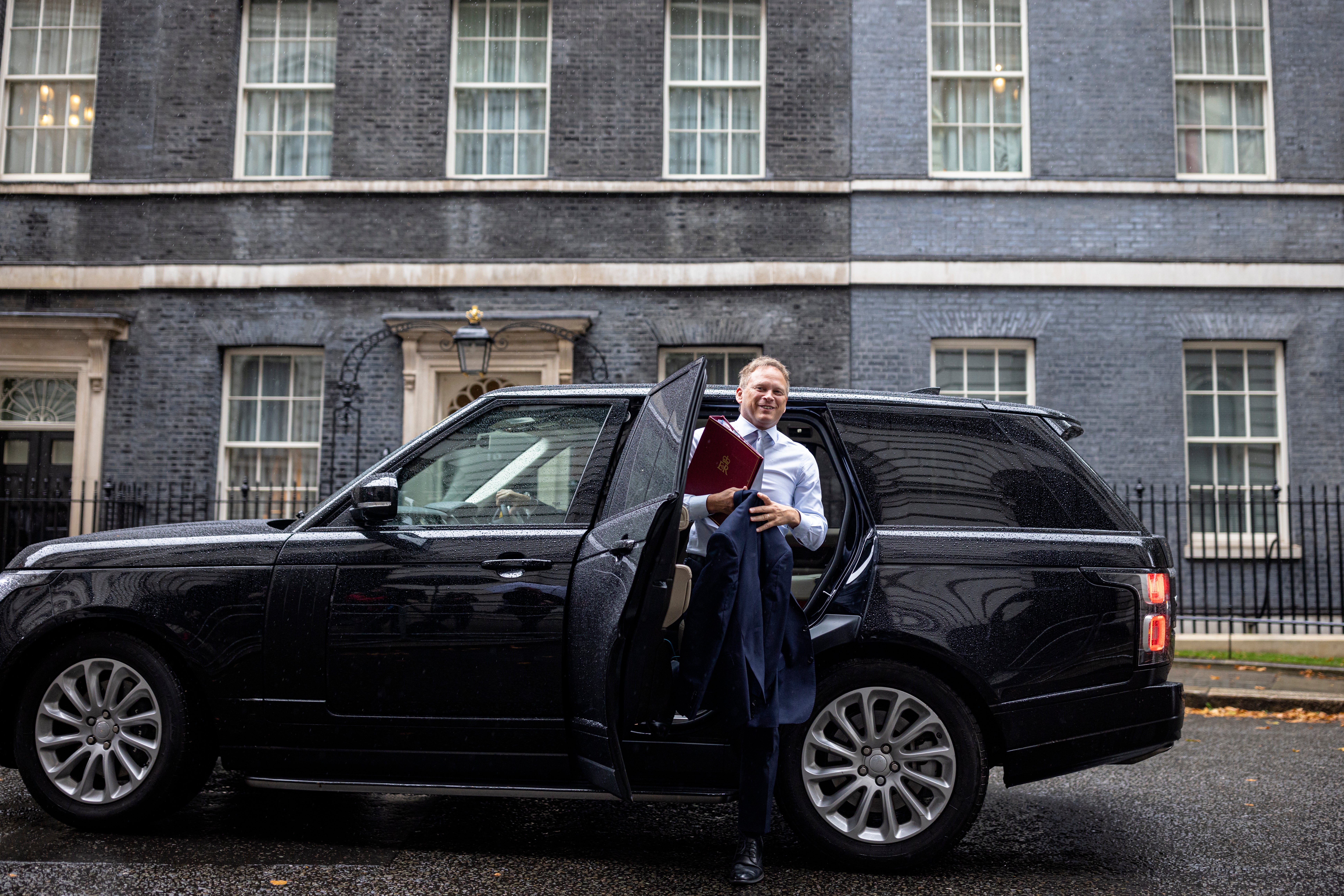Most Department for Transport cars still run on diesel despite government green plan
Government department responsible for body promoting greener vehicles

More than half of the cars used by the government department leading on the shift to greener alternatives to fuel still run on diesel, figures have revealed.
Of the 1,234 cars operated by the Department for Transport (DfT), 672 use diesel, 63 petrol, and the rest are electric or hybrid, data obtained by the BBC show.
Sales of new diesel and petrol cars are to be banned from 2030 as part of efforts to tackle the climate crisis.
The transition is being supported by the Office for Zero Emission Vehicles, which is part of the DfT.
Transport secretary Grant Shapps encouraged drivers to go electric on World EV day last week.
But Norman Baker, the former Lib Dem transport minister and a member of the Campaign for Better Transport, said the government should lead by example and drop the “don’t do what I do, do what I tell you” approach.
“Ministers cannot, on the one hand, tell people to do something and on the other hand do something else themselves,” he told The Independent.
A DfT spokesperson said the department is committed to transitioning to cleaner, greener vehicles in line with targets.
The government has promised to make its more than 40,000 cars and vans zero emission by 2027.
“The department and executive agencies have already exceeded the target for 2022, with 31 per cent low-emission vehicles, and are working towards the 2027 target,” the DfT spokesperson said.
The new figures show that 54 per cent of the DfT’s vehicles run on diesel, while 29 per cent are plug-in electric hybrids, 9 per cent are mild hybrids and 3 per cent are electric-only.
Among the vehicles the department is responsible for are 970 used by the Driver and Vehicle Standards Agency, and 96 cars to transport ministers and civil servants.
Of 112 ministerial cars, 15 per cent run on diesel and about 30 per cent on petrol, while 27 per cent are hybrid and 29 per cent fully electric.
The Maritime and Coastguard Agency had the highest proportion – 84 per cent – of diesel vehicles.
Mr Baker questioned why the government would need tens of thousands of cars.
“Most of these cars should go,” he said. “Why don’t they get on the Tube? They should be taking public transport; it’s good and perfectly safe. They should be leading by example.”
Earlier this year, MPs warned the government had not yet done enough to prepare for the “huge challenge” of phasing out all new petrol and diesel vehicles.
Just 11 per cent of new car registrations were for “ultra-low-emissions vehicles” in 2020.
The DfT fleet findings came just months ahead of Cop26, a major UN climate conference being hosted in Glasgow in November.
Join our commenting forum
Join thought-provoking conversations, follow other Independent readers and see their replies
Comments
Bookmark popover
Removed from bookmarks